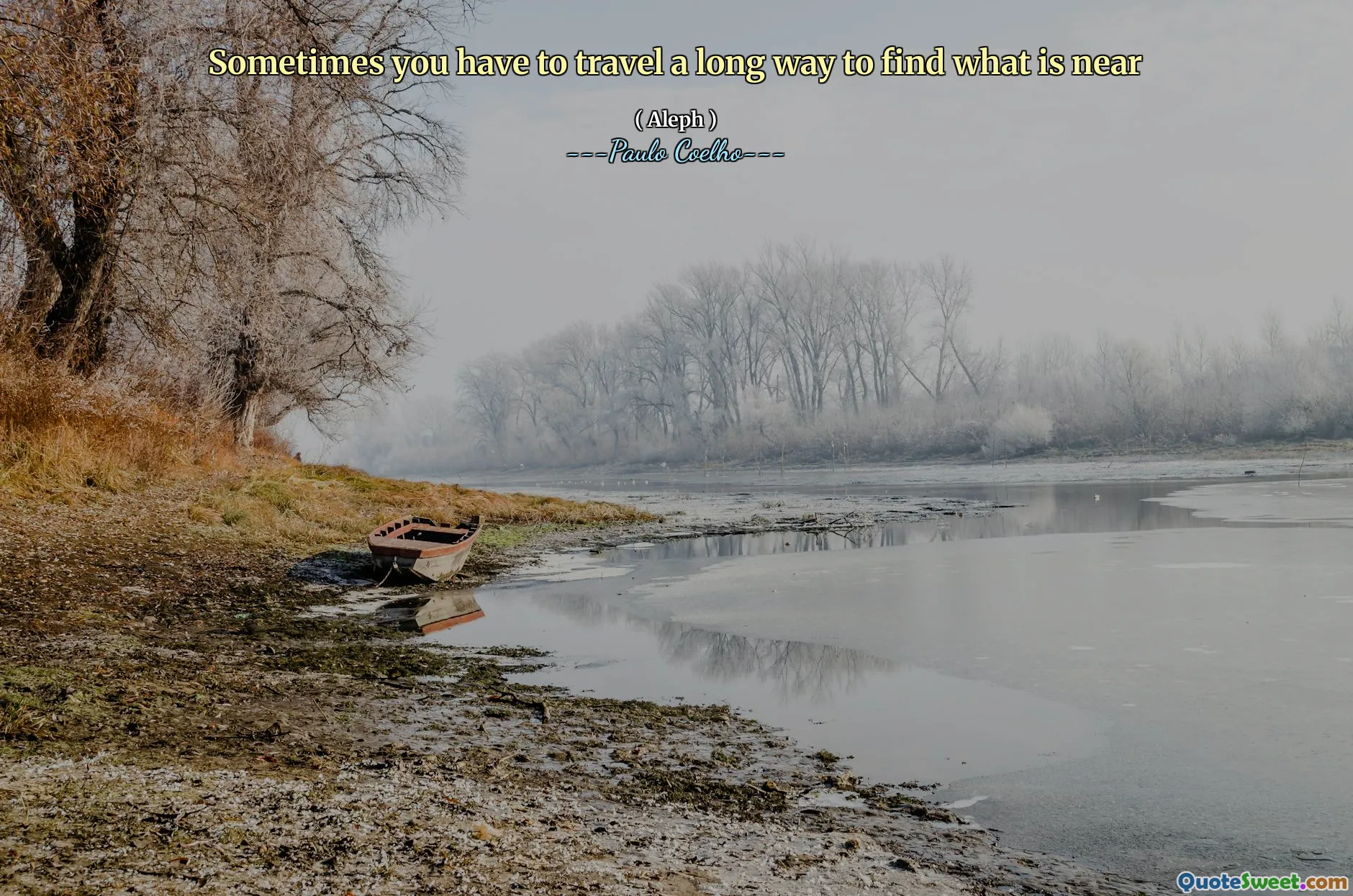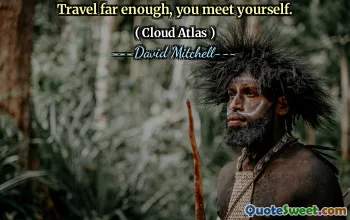
Sometimes you have to travel a long way to find what is near
This quote from Paulo Coelho's 'Aleph' eloquently captures a profound and often overlooked truth about human experience. It suggests that the journey toward enlightenment, understanding, or discovery often requires stepping far outside of our comfort zones and familiar surroundings before we can truly appreciate what we have close to us. The paradox here is that the act of traveling—whether physically, emotionally, or spiritually—forces us to re-evaluate and recognize the value of what is near and perhaps taken for granted.
In many ways, this resonates deeply with the human tendency to search far and wide for happiness, purpose, or meaning. We tend to look outward, thinking the answer lies elsewhere, only to find that the real treasure or truth was within or right beside us all along. This journey symbolizes growth, learning, and change. The distance traveled is not just literal but symbolic of the effort required to gain new perspectives or to attain a deeper understanding of ourselves and our surroundings.
Moreover, this quote invites reflection on the nature of presence and awareness. It reminds us to appreciate our current environment and experiences, suggesting that sometimes the journey itself transforms how we perceive what was once overlooked. This interplay between distance and proximity encourages mindfulness and gratitude, emphasizing that the process and the destination are intricately linked. Ultimately, Coelho's words are a call to embrace life's journeys with openness, for through them, we uncover the profound beauty and significance of what is near.








